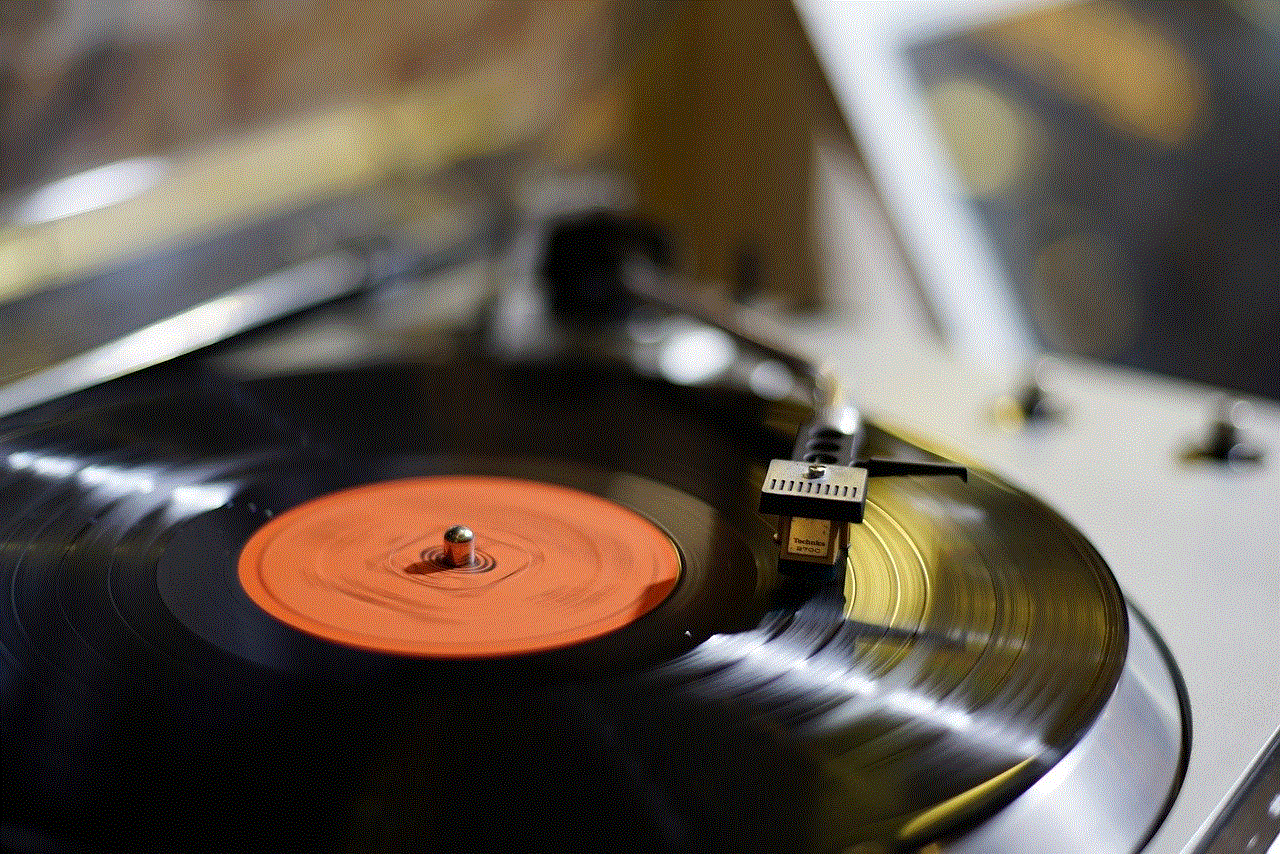netflix and chill sign
The phrase “Netflix and chill” has become a common expression in today’s society, often used as a code for a casual or intimate date night at home. It has become a popular saying, sparking countless memes, social media posts, and even a movie titled “The Netflix and Chill Experience.” But where did this phrase originate, and how has it become such a widely recognized term?
The phrase “Netflix and chill” first emerged in 2009 on the popular social media platform Twitter. It was used as a way to invite someone over for a low-key night of watching Netflix together. However, it wasn’t until 2014 that the phrase gained widespread attention and became a pop culture phenomenon.
In September 2014, a Tumblr user posted a screenshot from a Netflix catalog, which listed the movie “Daredevil” with the description “Netflix and Chill.” The post quickly went viral, and the phrase “Netflix and chill” became a popular way to invite someone over for a casual night in. It was also around this time that the phrase started to take on a more suggestive connotation, often used as a euphemism for hooking up.
As the phrase gained popularity, it also sparked a debate on whether it was a harmless invitation for a movie night or a sly way of propositioning someone for sex. This debate was further fueled by the release of the movie “The Netflix and Chill Experience” in 2015, which portrayed the phrase in a more risqué light.
Despite the controversy, the phrase continued to gain momentum and became a part of popular culture. It was referenced in TV shows, movies, and even made its way into mainstream music. In 2015, rapper Sir Mix-a-Lot released a song titled “Netflix and Chill,” which further solidified the phrase’s place in pop culture.
But what exactly does “Netflix and chill” mean? The phrase has evolved over time, and its meaning can vary depending on the context and the individuals involved. For some, it still simply means a night of watching Netflix with someone, while for others, it may imply a more intimate evening. Some may use it as a way to flirt or initiate a hookup, while others may genuinely just want to watch a movie and relax.
The popularity of “Netflix and chill” can also be attributed to the rise of streaming services and the decline of traditional cable television. With the convenience of streaming platforms like Netflix, Hulu , and Amazon Prime, more and more people are opting for a night in rather than going out to a movie theater. This shift in media consumption has made “Netflix and chill” a relatable and relished activity for many.
The phrase has also become a symbol of the changing dating culture, where casual hookups and friends with benefits are becoming more common. It has become a way to express interest in someone without the pressure of a formal date or commitment. However, it has also been criticized for promoting a hookup culture and diminishing the value of meaningful relationships.
Despite the potential negative connotations, “Netflix and chill” has brought people together and provided a new way to connect with others. It has become a shared experience and a source of humor among friends and strangers alike. The phrase has also spawned countless spin-offs and variations, such as “Amazon and chill” or “Hulu and hang.”
The trend of “Netflix and chill” has also extended beyond just watching movies or TV shows. People have taken it to the next level by creating elaborate themed movie nights, complete with matching snacks and decorations. It has become a way to make staying in feel more special and exciting.
The phrase has also had a significant impact on the entertainment industry. Companies have started to use it in their marketing campaigns, and some have even released “Netflix and chill” themed products, such as candles, t-shirts, and even condoms. This not only shows the influence of the phrase but also highlights the power of pop culture in shaping consumer behavior.
However, as with any trending phrase or meme, “Netflix and chill” has also faced its fair share of backlash and criticism. Some argue that it perpetuates a hookup culture and promotes a lack of meaningful connections. Others have raised concerns about the pressure it puts on individuals to engage in sexual activity or the potential for sexual harassment.
In response to these criticisms, Netflix has even released a statement, clarifying that their original intention for the phrase was simply to promote their content and not to encourage or condone casual hookups. They also emphasized the importance of consent and respect in all relationships.
In conclusion, “Netflix and chill” is more than just a catchy phrase; it is a cultural phenomenon that has taken the world by storm. It has become a part of our everyday language and has changed the way we view dating and relationships. Whether you use it as a playful invitation or a suggestive hint, “Netflix and chill” has undoubtedly left its mark on popular culture. Despite the debates and controversies surrounding it, one thing is for sure – it is not going away anytime soon. So the next time you feel like staying in and watching your favorite show, don’t be afraid to ask someone to “Netflix and chill.” Who knows, it could be the start of your own “Netflix and chill” experience.
boujee vs bougie
The term “bougie” has been used in popular culture for decades, but in recent years, it has taken on a new form – “boujee”. These two words may seem similar, but there are distinct differences between the two. While they both refer to a sense of luxury and extravagance, they have different connotations and origins. In this article, we will delve into the world of “bougie” and “boujee” and explore their meanings, histories, and usage in today’s society.
First, let’s break down the definitions of these two words. According to the Merriam-Webster dictionary, “bougie” is defined as “a short, wide candle that is thicker than a taper.” This definition is derived from the French word “bougie”, which means “candle”. It was originally used in the medical field to describe a thin instrument inserted into the body for diagnostic or therapeutic purposes. However, over time, “bougie” has taken on a different meaning and is now used to describe someone who is pretentious or snobbish.



On the other hand, “boujee” is a slang term that originated from the word “bourgeoisie”, which refers to the middle class in society. It was popularized by the song “Bad and Boujee” by hip-hop group Migos in 2016, which reached No. 1 on the Billboard Hot 100 chart. The term “boujee” is often used to describe someone who is wealthy, fashionable, and living a luxurious lifestyle. It is seen as a positive term, unlike “bougie”, which has a negative connotation.
Now that we have established the definitions of these two words, let’s dive deeper into their origins and histories. As mentioned earlier, “bougie” has its roots in the French language and was originally used in the medical field. It was first used in English in the 18th century and was commonly used to describe a thin, flexible catheter used in medical procedures. However, it wasn’t until the 1980s when the term took on a new meaning – to describe someone who is trying too hard to be sophisticated or upper class.
The word “boujee”, on the other hand, has a more recent origin. It is a slang term that has been popularized by hip-hop culture, specifically in the song “Bad and Boujee” by Migos. The group defines “boujee” in their song as “rich and sophisticated”, and it has since been used in various songs, memes, and social media posts. It has even made its way into mainstream media and has been used by celebrities such as Beyoncé and Kim Kardashian.
The usage of these two terms has evolved over time, and they are now used in different contexts. “Bougie” is often used to describe someone who is trying too hard to be sophisticated or upper class. It is associated with being pretentious, snobbish, and materialistic. On the other hand, “boujee” is seen as a more positive term and is often used to describe someone who is wealthy and living a luxurious lifestyle. It is associated with being fashionable, glamorous, and successful.
The evolution of these two words can also be seen in their spellings. While “bougie” is the traditional spelling, “boujee” is a more modern version, often used in slang and informal contexts. The addition of the extra “e” and the change in pronunciation reflect the shift in their meanings. “Bougie” is pronounced as “boo-zhee”, while “boujee” is pronounced as “boo-jee”.
Another difference between “bougie” and “boujee” is the way they are used in different social circles. “Bougie” is often used by the working class to describe those who are trying too hard to be upper class. It is seen as a derogatory term and is used to mock or criticize someone’s behavior. “Boujee”, on the other hand, is used by the upper class to describe their own lifestyle and to show off their wealth and status. It is seen as a term of pride and is often used to flaunt one’s success.
The usage of these two terms has also been influenced by race and socioeconomic status. “Bougie” is often associated with the Black community and is used to describe someone who is trying to fit into a higher social class. It is used as a way to criticize and ridicule Black individuals who are trying to better themselves. On the other hand, “boujee” is often associated with the White community and is used to describe their own luxurious lifestyle. This shows the societal divide and perception of wealth and success based on race.
Despite their differences, “bougie” and “boujee” have one thing in common – they both represent a sense of luxury and extravagance. In today’s society, the pursuit of wealth and success is glorified, and these two words have become symbols of that pursuit. However, it is important to note that the meanings and usage of these terms are constantly evolving and can vary depending on the context and the individual using them.
In conclusion, “bougie” and “boujee” may seem similar, but they have distinct differences in their meanings, origins, and usage. While “bougie” is often associated with being pretentious and snobbish, “boujee” is seen as a more positive term, representing success and wealth. Their evolution over time reflects the ever-changing landscape of language and its ability to adapt and evolve. Whether you identify as “bougie” or “boujee”, it is important to remember that at the end of the day, these words are just labels and should not define who we are as individuals.
what does pos mean



POS or Point of Sale is a term used to describe the place where a transaction takes place between a merchant and a customer. It can refer to both physical and virtual locations where products or services are exchanged for payment. In the modern retail landscape, POS has become an integral part of the shopping experience, and it plays a crucial role in the success of businesses of all sizes.
The concept of POS can be traced back to the early days of commerce when people would exchange goods or services directly with one another. As trade evolved and economies grew, the need for a designated place for transactions emerged. This led to the rise of marketplaces and bazaars where buyers and sellers would gather to conduct business. Over time, these physical locations evolved into what we now know as modern-day shopping centers, supermarkets, and retail stores.
The advent of technology has had a significant impact on the way POS operates. In the past, transactions were recorded manually, and inventory management was a painstaking process. However, with the introduction of electronic cash registers and barcode scanners in the 1970s, the process became more streamlined and efficient. The 1990s saw the emergence of the first point of sale software, which revolutionized the retail industry. It allowed for the integration of sales, inventory, and customer data, making it easier for businesses to manage their operations.
Today, POS systems have become even more advanced, with the introduction of cloud-based solutions and mobile technology. These advancements have made it possible for businesses to manage their operations from anywhere, at any time, and have enabled them to offer a seamless shopping experience to their customers.
One of the key advantages of a POS system is its ability to process transactions quickly and accurately. With the use of barcode scanners, products can be scanned and added to the customer’s bill in a matter of seconds. This not only saves time for both the merchant and the customer but also reduces the chances of human error, leading to more accurate records and inventory management.
In addition to transaction processing, a modern POS system also offers a variety of features that can help businesses streamline their operations and improve their overall performance. These features include inventory management, customer relationship management, sales reporting, employee management, and more. By having all these functionalities in one system, businesses can save time and resources that would otherwise be spent on managing different software and systems.
Another significant benefit of a POS system is its ability to provide valuable insights into a business’s performance. By analyzing sales data, businesses can identify their top-selling products, peak sales periods, and customer buying habits. This information can then be used to make informed decisions on inventory management, marketing strategies, and pricing. Having access to real-time sales data also allows businesses to make quick adjustments to their operations, ensuring that they are always meeting customer demands and maximizing profits.
POS systems have also made it easier for businesses to offer a personalized shopping experience to their customers. With the use of customer relationship management (CRM) tools, businesses can store customer data such as purchase history, preferences, and contact information. This allows them to tailor their marketing efforts and offer personalized promotions and discounts to their loyal customers. By building a strong relationship with their customers, businesses can increase customer retention and loyalty, leading to long-term success.
Apart from traditional retail stores, POS systems have also become an essential tool for businesses in the hospitality industry. Restaurants, bars, and hotels use POS systems to manage their operations, from taking orders and processing payments to tracking inventory and managing reservations. With the use of handheld devices, servers can take orders and send them directly to the kitchen, reducing the chances of errors and improving efficiency. POS systems have also made it easier for businesses in the hospitality industry to manage their inventory, as they can track items in real-time and place orders when needed, ensuring that they never run out of stock.
In recent years, the rise of e-commerce has led to the emergence of virtual POS systems. These are online payment solutions that allow businesses to accept payments from customers through their websites or mobile apps. With the increasing popularity of online shopping, virtual POS systems have become an essential tool for businesses looking to expand their reach and offer their products or services to a wider audience.



Virtual POS systems offer the same features and benefits as traditional POS systems, with the added advantage of being accessible from anywhere with an internet connection. This has made it easier for small businesses and entrepreneurs to start an online store without the need for a physical location. It has also enabled businesses to offer a seamless shopping experience to their customers, regardless of their location.
In conclusion, POS systems have become an integral part of the retail landscape, and their importance will only continue to grow in the future. From traditional retail stores to online businesses, POS systems offer a wide range of benefits that can help businesses streamline their operations, improve customer experience, and increase profits. As technology continues to evolve, we can expect to see even more advancements in POS systems, making them an indispensable tool for businesses of all sizes.